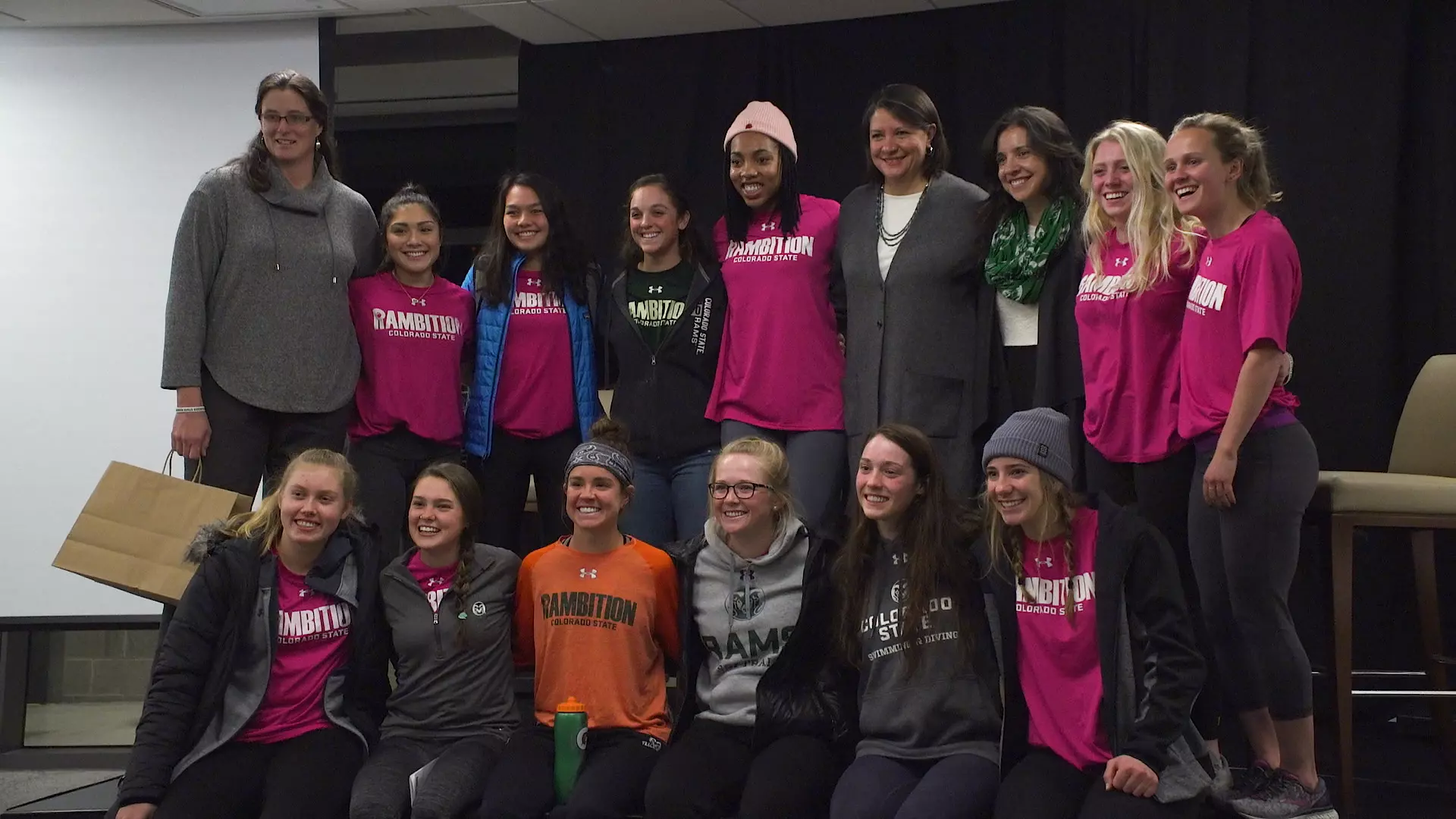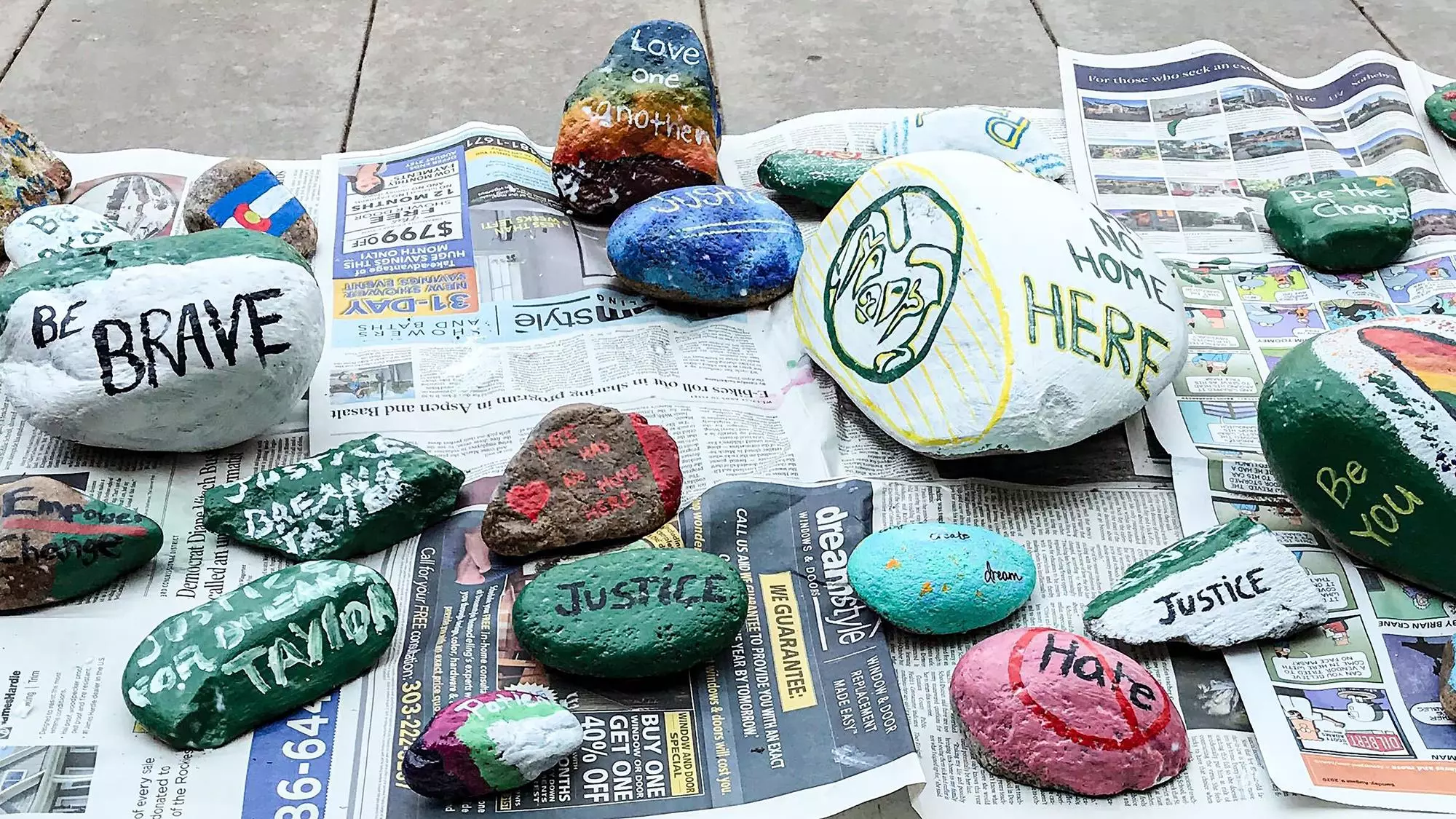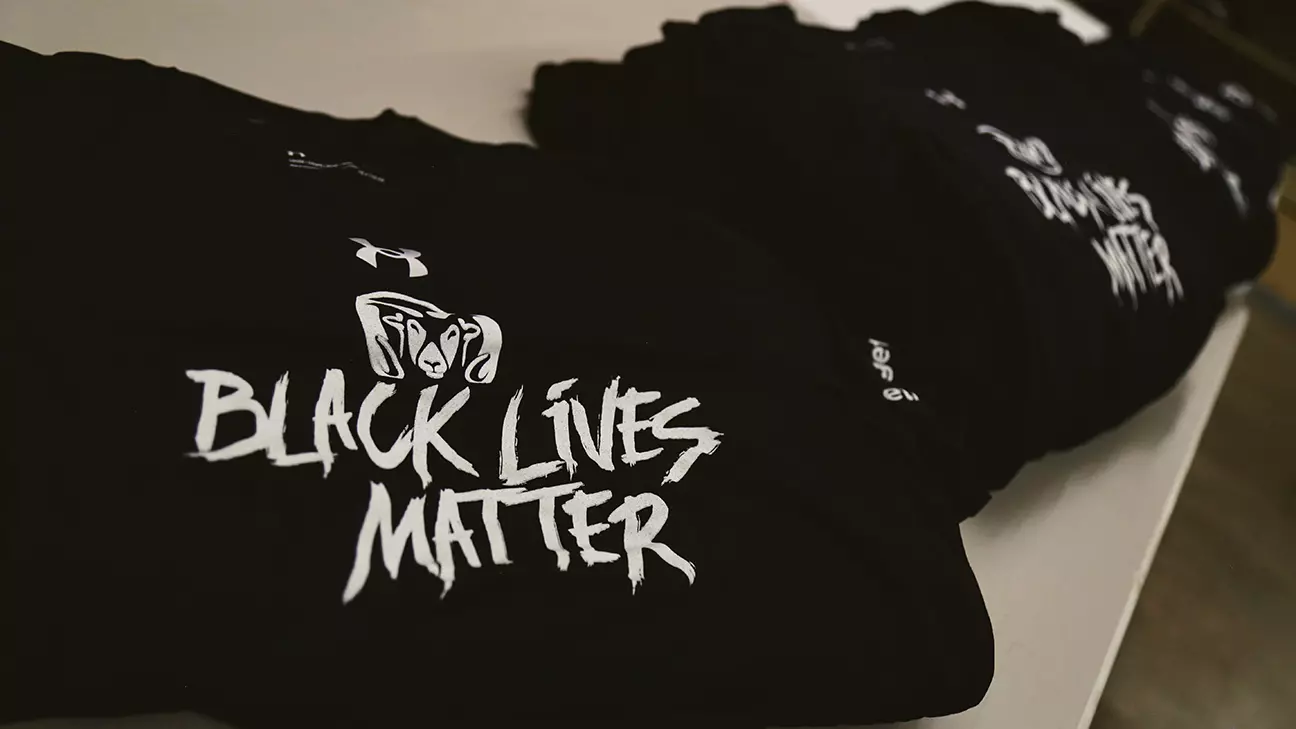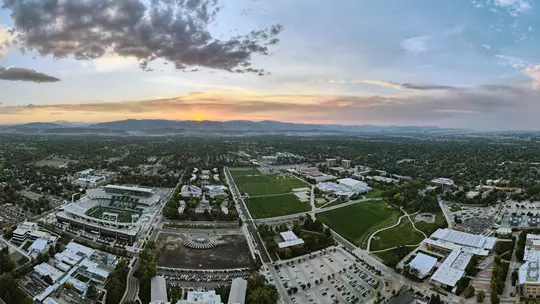
Athletic Department Takes Intentional Approach to Diversity and Inclusion
A myriad of programs have helped set a blueprint on campus
The student-athlete body changes constantly. So do the topics.
For those reasons, Dr. Albert Bimper, the Assistant Vice President of Student Affairs/Student-Athlete Support Services and the Senior Associate Athletic Director for Diversity and Inclusion, wants to help the student-athletes on campus develop their own toolbox through a myriad of voices.
He doesn’t want to address them in one way or with one voice. He doesn’t want anybody to tell them what to think, but how to think for and educate themselves, which is the approach he’s taken since joining the staff in 2013 after having been a football player at Colorado State himself.
“I think the conversation is pretty heavy, and can be heavy at times,” Bimper said. “In addition, people come from different experiences, so with such topics around diversity, inclusion and equity, I think the variety allows people to consume and digest information differently. It allows people to enter the space or be in the space and hear things in different ways. That has been the approach I try to take. They don’t always hear it the same way, they don’t learn the same way because of the lens and experiences they have.”
The student-athlete population is the most diverse on the Colorado State University campus, so Bimper has started or helped foster a number of programs within the athletic department to help create a safe space of shared ideas. Staff has attended the annual NCAA Inclusion Forums, the Women Leaders Conference and the Black Student-Athlete Summit. Coaches and their assistants have taken part in a speaker series which addresses micro-aggression in coaching, learning from student-athletes and families of interaction and racial injustice, leading with cultural competency and responsiveness and supporting the diverse group they work with and mentor. The Together Initiative helped foster conversations about racial injustice and how to lend support throughout the department.
Team-geared events have addressed partnered safety and assessment and Title IX, as well as sessions to discuss race and social injustice. Rambition, a group to help empower female student-athletes, was started, as was the John Mosley Leadership Program. He began a series called Courageous Conversations, addressing the topics of justice and due process, racial inequality, community policing and pathways for diverse leadership.
On August 1 of this year, Dr. Kauline Cipriani joined the leadership team of President Joyce McConnell as the new Vice President for Inclusive Excellence. She isn’t fully versed in all the work Bimper has done in the athletic department yet, but what she has seen has impressed her, including bringing in Dr. Akilah Carter-Francique, who runs social change workshops through the San Jose State University Institute for the Study of Sport, Society and Social Change.
His work, Dr. Cipriani believes, can help lead a path university-wide.
“What I’d say is I’m very impressed with what Dr. Bimper has done,” she said. “I really think he’s doing some unique and exceptional work in this space compared to other universities. I think he is setting a blueprint for us.
“I think his commitment is unwavering, and his understanding of the issues is broad, and he really understands how to apply it in the world of athletics. He’s checking off a lot of boxes for me.”
What I’d say is I’m very impressed with what Dr. Bimper has done. I really think he’s doing some unique and exceptional work in this space compared to other universities. I think he is setting a blueprint for us.Dr. Kauline Cipriani
The two, whose work will bring them together often, are very alike in their approaches.
Bimper knows the conversation will always change. When he first arrived, it was Trayvon Martin and Colin Kaepernick. In the summer of 2020, it was George Floyd. He wants the student-athletes on campus to be prepared for whatever the conversation may be, because it will never be the same.
For Cipriani, the ever-changing landscape of our society will always require the need to keep moving forward, as there is no stopping point.
“Diversity and inclusion – I like to use the term inclusive excellence, because it’s broader than diversity and inclusion – it’s not finite,” she said. “It’s not like other parts of higher education, where you participate in a number of pre-determined steps and achieve a certificate or a degree. This is about lifelong learning. I am still learning things now, and I’m a professional in this field. This work is a journey. It’s not a destination. People have to be patient with themselves and each other, and we need to help each other along this journey, as we should in life.
“I feel I spend a lot of time moving people away from the notion that if we do these things in this order, then we’ve made it. There’s no we’ve made it. We will always be pursing inclusive excellence, we will get better at the pursuit, it will get easier over time, because, like with anything else, practice makes perfect. But there is no end to the journey.”
Sam Jones was just added to Niko Medved’s men’s basketball staff, and he’s been encouraged by the steps taken by the athletic department to address the needs of the student-athletes and those who lead them on a daily basis.
He said the reality is the conversations really started to happen with intent and regularity in the past couple of years, and it was no different in his last stop, which was with the Cleveland Cavaliers in the NBA. He said as an organization, those topics weren’t being addressed in his five seasons until the last one, and they started to bring in outside sources to come educate the team.
His goal as a coach is to make sure those conversations continue, not just among the staff, but among the players.
“First, it’s education. It’s awareness and admitting it,” Jones said. “It’s educating yourself on those issues. Then there’s actions. How you continue these conversations, how do you step up and get out in the community and keep promoting these issues. It’s finding a way to be active.
“You have to be intentional. You have to be deliberate and start those conversations. If you look at our staff, it is diverse. We have an African-American on staff, we have an Asian-American, we have a woman on our staff. I like the way our staff is put together, but with that, I think we have to give the players the space to communicate with us, but be intentional and be deliberate in sparking those conversations. It’s our reality. We had a recruit on campus not too long ago, and Fort Collins is not the most diverse city in America, and we don’t ignore that fact. I talked to the mother in private, and she was like, there’s not a lot of black people here, he needs to see somebody who looks like him. Those are conversations we need to be intentional on having.”
What Carter-Francique and Bimper note is locker rooms are a place where a common denominator – a love of sport and competition – bring people of all backgrounds together. There, as well as on team bus rides and sharing a hotel room on the road, is where conversations can spark and student-athletes can start to learn and understand how varied life experiences shape them all in different ways. From there, understanding and empathy can blossom.
Her style for her workshops is designed to open up the floor to learn about each other, and not just what people think, but why they think what they do by addressing who they are.
She used post-it notes to spark conversation about how people actually define diversity, equity and inclusion.
“Like many of us who have sat in those trainings, it’s here we go again or there’s never any opportunity to have conversation,” she said. “I think when we talk about topics like this, we need to have a conversation. I first like to set the stage and open up that we want to create a space where we can have some understanding, to provide those facts, provide those historic events, to set a foundation. Then you begin to talk about and unpack those situations. There are some situations and events that we have lived through. There are some we know about, but don’t fully understand all the parameters and things that took place, so I think if we can bring that information first, then we can get on a level playing field where we can have a conversation about it and beginning to see ourselves in these issues, and not see ourselves separated from these issues which take place.”
She addressed each team and each department, but for the administration, she held a different session targeted for their specific work. Her belief is much of what college athletic departments are learning is in the workplace, not the customary classroom setting, which she knows presents a specific challenge.
Mainly, it is the dexterity to pivot and create a space where information on equity, diversity and inclusion can be integrated into their everyday work.
Doing so will help learn about the diverse group of student-athletes on campus, who have already become very active among themselves.
They are talking and taking stands. The Student-Athlete Advisory Committee, with the help of the athletic department, created Black Lives Matters T-shirts for every student athlete and department member who wanted one. Athlete Ally T-Shirts, an athlete-led group which supports the LGBTQ community, were also delivered by the group.
Softball player Danielle Serna knows the group of young women she plays with all come from different experiences. She said the team has taken the approach to not always come together about a topic, but see and understand alternate points of view and learn to coexist.
She appreciates the fact the athletic department has made certain resources available to them, but she is particularly fond of how her team has approached issues.
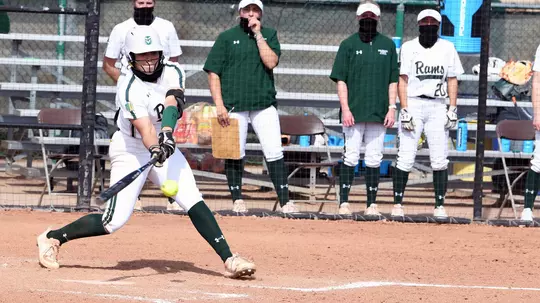
“I think coach Jen Fisher really values those difficult conversations and bringing light to certain topics which are current in this world,” she said. “I feel we as a team also value different perspectives. We’re not going to shut one side out. It’s having a conversation, learning the opposing viewpoints and expressing how you feel without being shut down. Coach Fisher does a very good job of having those conversations promptly in a way that’s very inclusive.
“We’ve hit on Black Lives Matter and LGBTQ and Athlete Ally, and we’ve had conversations about what being an ally means and how it affects us as a team, as well as the different personalities. I think we bring meaning to what we’re given. The Black Lives Matter shirt we were given, we had a conversation about what it means, how we wear it and how we express everything. The same with Athlete Ally, what it might mean to our peers who are right next to us. It’s going back to its more than softball, it’s more than a shirt. There’s a lot more history behind everything.”
Bimper brought up the quote of Tariq Ali, who said, “History rarely repeats itself, but its echoes never go away.” The conversations can be heavy at times, based on what people know from what they’ve experienced themselves. He is out to bridge those gaps.
Which is what Jones wants to see. People crossing the aisle to join someone or a group of people who don’t look like them. To him, it’s about proximity. He said it’s hard to be empathetic toward someone or understand them if you don’t get close to them.
Cipriani has two goals, and while they are her unique viewpoint, they are similar to what Bimper and the athletic department are trying to achieve.
“As a campus, we’ve got to simultaneously work on multiple goals. The goals are the same whether we are talking about athletics or another unit. One goal is to intentionally support underrepresented students while they’re here on campus, because many of them may not know how to navigate campus, or thrive in our culture, for any number of reasons. Student-athletes of color may not be underrepresented in athletics, but they are on this campus. We need to try to help make that transition here as easy as possible for them, and we owe them a satisfying and enriching student experience.
“The other goal we need to work towards is culture change. There will always be the need to respond to current hot topics in inclusive excellence. But, we should all be pursuing strategic culture change, and that requires an intentional campus-wide approach to inclusive excellence that includes examining and adjusting what I like to call the four Ps – pedagogy, policy, practices and professional development. We need training around managing bias, mentorship and advocacy across all our differentials, including race, gender and power. Those conversations, linked to specific and intentional actions, will start to help change the culture, to one that is increasingly inclusive.”
They agree the work has started. They also understand there is no finish line. But as coaches and leaders -- even the student-athletes know -- the work to drive forward will have to remain constant and unwavering.

